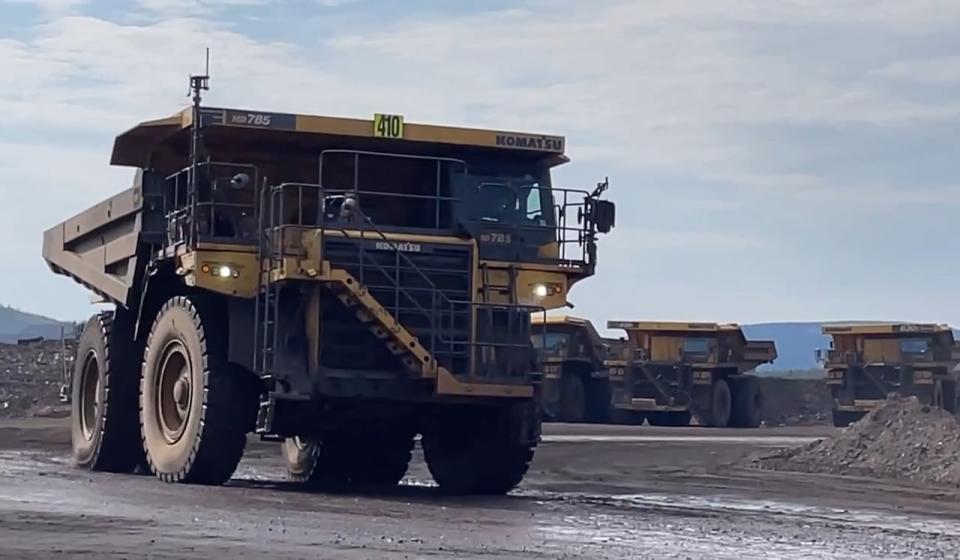
Mining Industry N.L. executive director Amanda McCallum says companies, like Tacora Resources, need more energy in order to grow their operations. (Darryl Dinn/CBC)
A mining industry representative says the proposed Churchill Falls hydro deal could mean big gains for the sector — which, she says, needs the power boost to expand projects and reach decarbonization goals.
Last week, Newfoundland and Labrador Premier Andrew Furey and Quebec Premier François Legault announced the terms of a memorandum of understanding to renegotiate the 1969 contract, boost energy production at the Churchill Falls plant and plans to develop Gull Island.
Mining Industry N.L. executive director Amanda McCallum says it’s critical that the boost in energy be made available to the mining sector in Labrador.
“When you look at the mining and mineral resources sector in this province, it’s an industry that really requires excessive amounts of power to be able to operate,” McCallum told CBC Radio’s St. John’s Morning Show.
Mining operations are energy intensive and the operators need access to the necessary energy to economically grow operations, said McCallum, adding it’s pivotal for the industry in order to advance production.
McCallum says many mining projects haven’t been able to effectively expand operations because they don’t have access to the necessary power and companies are also moving toward decarbonization through switching from oil powered operations to electric.
“This is really, at the core, important to industry,” she said. “They need to be able to look at electrifying their operations and transitioning from fossil fuel power generation to electricity, [and] in this case hydroelectricity.”
Lab West needs energy
McCallum said approximately 25 per cent to 30 per cent of Canada’s iron ore comes from a region in Labrador called the Labrador Trough.
There are long-time iron ore operations like the joint Rio Tinto and Iron Ore Company of Canada venture and there are newer projects looking to ramp up.
Tacora Resources, which owns the Scully Mine in Wabush, just announced it wants more power than the 50 megawatts it currently uses.


McCallum says the mining sector is second in the province in terms of contribution to the GDP. (Jonny Hodder/CBC)
“In order for them to expand and to meet their decarbonization goals, they need about four times that capacity. So they need 200 megawatts of power,” said McCallum.
Last week’s Churchill Falls hydro announcement calculates that 1,990 megawatts would be available to N.L. through the new deal, quadrupling the current amount.
“When you’re talking about an operation, that in order for them to expand needs about 200 megawatts, that’s almost a tenth of that capacity. But these are really large scale industrial projects,” she said.
Big gains
McCallum said the mining sector is important to the province’s economy. It’s the second largest contributor to Newfoundland and Labrador’s GDP.
“Oil production is at 22.8 per cent, mining is at 7.3 per cent,” said McCallum. “There’s about 8,000 person hours also projected for 2024. So it’s a big workforce and mining happens in rural Newfoundland and Labrador.”
The non-binding MOU signed last week is scheduled to be finalized by April 30, 2026.
McCallum said representatives from the industry will be engaged in discussions with the province during that period.
“I’d like to be able to see, almost, a needs assessment. Like what will some of these industrial plans look like? An industrial plan or framework for the province,” she said.
Download our free CBC News app to sign up for push alerts for CBC Newfoundland and Labrador. Sign up for our daily headlines newsletter here. Click here to visit our landing page.

